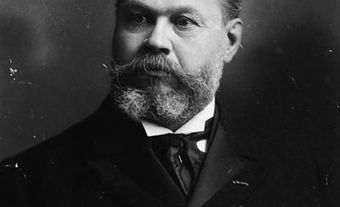Council of Ministers of Education, Canada
The Council of Ministers of Education of Canada modelled on the West German Kultursministerkonferenz, was established in 1967 to provide a collective provincial voice on educational matters to federal government offices and agencies and to facilitate interprovincial consultation and co-operation. One of the council's outstanding accomplishments was that of co-ordinating the Organization for Economic Cooperation and Development review of national policies for education in Canada, which was completed in 1975. It has also administered federally supported official-languages programs in the provinces, the preparation of the metric style manual, and a guide for the equivalency assessment of transfer students. Its concerns include multimedia school programs, computer education, curriculum surveys and the preparation of reports on manpower research, financing of education, women's issues in education and multicultural education policies in Canada. Since 1977 the CMEC has increased its efforts to conduct conferences with representatives of nongovernmental national educational organizations, such as those representing second-language teachers, school trustees, teachers, colleges and university associations.
The council also provides for representation at international meetings, such as those of UNESCO and the OECD, and arranges for the hosting of visiting international scholars. The council has no constitutional powers; although council decisions are not binding on any minister of education, decisions of the council generally reflect consensus positions of the provinces. There is, unfortunately, a continuing turnover in council membership because of the relatively brief tenure of provincial education ministers.

 Share on Facebook
Share on Facebook Share on X
Share on X Share by Email
Share by Email Share on Google Classroom
Share on Google Classroom


